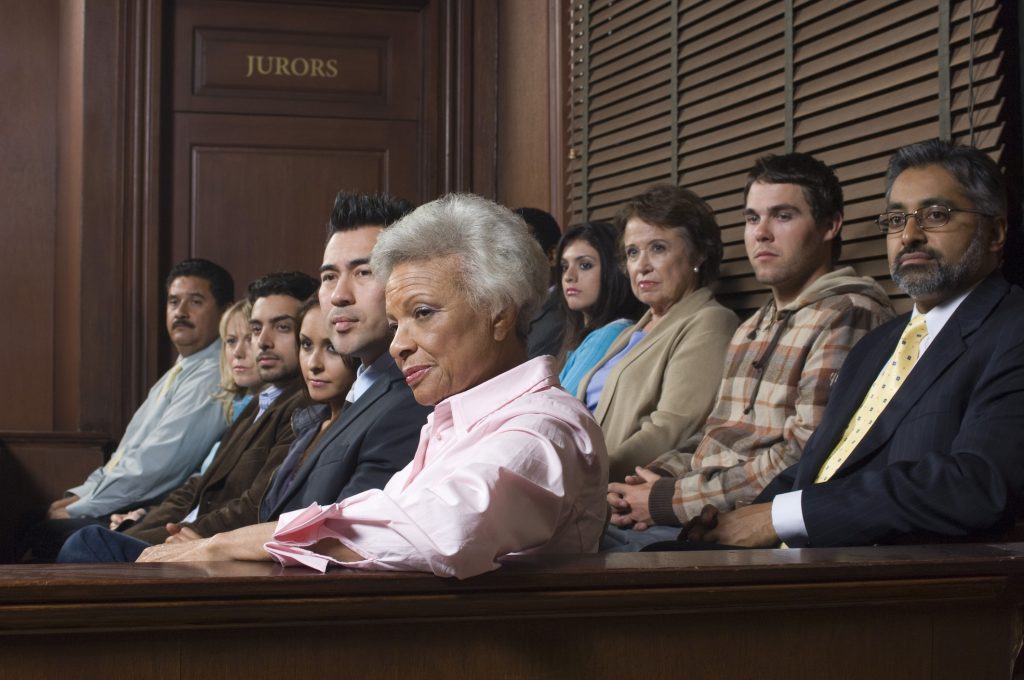VOLUME 24 NUMBER 16
Suppose someone has asked the Arizona courts for appointment as your guardian and/or your conservator. A trial has been set to consider the petition. Do you think you should be entitled to a jury trial before a guardian or conservator is appointed?
Under Arizona law, you are entitled to a jury trial — at least on the guardianship part of the petition. The guardianship statutes expressly say you can demand a jury. You may not be able to insist on a jury trial on the conservatorship portion of the proceeding, however.
The Conundrum
But here’s a logical dilemma: if you are in need of someone to make your personal decisions for you, how could you ever waive your right to a jury trial? In other words, is it possible that every guardianship petition should require that a jury be empaneled, the matter be laid out with full formality, and the decision made by your peers?
That was the essential argument made in a recent Arizona Court of Appeals case. The facts were pretty straightforward. Two of the daughters of Randy Stevens (not his real name) asked the court to be appointed as his guardian and conservator, saying that Randy was not able to make his own personal or financial decisions. After a trial — Randy was present and participated — the probate judge appointed one daughter as guardian of his person and the other as conservator of his estate.
Randy had not asked for a jury trial. The fact that his case was decided by the judge (without a jury) became the basis for his appeal. His argument: the right to a jury trial is very important, and should be waived only with a clear and explicit waiver. Oh, and someone who has a guardian or conservator appointed probably can’t understand the proceedings well enough to effectively waive the jury, anyway.
The Law
A word about language: in Arizona, at least, a guardian can be appointed to make personal decisions for someone who is incapacitated. A conservator can be appointed to make financial decisions for someone who needs protection. Usually the two questions are addressed in a combined proceeding.
Arizona law does mandate a jury trial in a guardianship proceeding — if the subject of the proceeding requests it. The statutes do not say that any waiver must be informed or explicit. Instead, the law puts the burden on the individual to request a jury trial.
Nothing in Arizona law requires a jury trial for a conservatorship proceeding. It might be odd, but it would be possible for the judge and jury to split duties. In other words, the jury could decide whether a guardian was necessary. In the same proceeding and at the same time, the judge could decide the conservatorship.
The Appeal
Randy (through his lawyers) argued that the probate judge should have discussed Randy’s right to a jury trial with him. The waiver should have been accepted only if he clearly understood and preferred to have the judge rule. Since guardianship and conservatorship are so intertwined, he should have been granted a jury trial on both parts of the proceeding.
The Court of Appeals did not agree. It ruled that Randy needed to say he wanted a jury trial. If he had, then the probate judge could have dealt with whether the jury would decide both questions.
The appellate judges noted that Randy had not raised his jury trial question until after the probate judge had ruled. Because he had not raised it earlier, he had waived his right and could not prevail on appeal. But, said the Court of Appeals, even if that were not the case he still could not have prevailed. In Re Guardianship and Conservatorship of Sommer, April 13, 2017.
Practical Effects
Though Arizona law has provided for jury trials in guardianship cases since at least 1974 (when we adopted the Uniform Probate Code), very few have been conducted. In fact, most regular practitioners agree that there might not have been a single jury trial in a guardianship case in over four decades. The cost, delay and complication of a jury trial might be daunting. The desire to keep family issues private might also discourage people from asking for jury trials.
Left unanswered by the Court of Appeals decision in Randy’s case: exactly how would a jury trial work? It might be that the jury’s verdict is only “advisory” — that the probate judge can make the final decision even with a jury. Also, as noted above, any request for appointment of a conservator would be treated separately. The jury might only have the guardianship portion of a petition to address in any case.
Will heightened focus on jury trials mean that some are scheduled in the near future? Perhaps. The cost and complexity of guardianship proceedings have both increased steadily for several decades. This trend might continue, and jury trials would certainly contribute to it.



